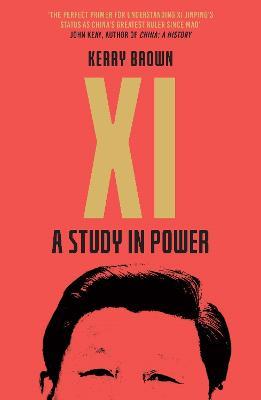
Those who come charging at this book “Xi: A Study in Power,” by Kerry Brown, a Sinologist at King’s College would be forewarned that the book has no salacious details.
Thus one should forget any faction infightings and supports that President Xi Jin Ping (hereon Xi)—–may or may not rely upon—-to climb to the top of the totem pole of the Chinese Communist Party (CCP).
For instance, Kerry Brown did not delve into the support with which Xi may have latched onto, such as the Fujian and Cheqiang factions to lord over all other groups in the CCP, including those from Jiangxi, where Xi was originally born.
By stripping the book of any prior antagonism with Bo Xilai, the flamboyant albeit ex-mayor of Chungxing, one of the four largest cities in China, after Beijing, Shanghai and Shenzhen, Kerry Brown has also done the readers a ‘service’ of going straight to the point.
True, while Bo Xilai and his wife, of whom the latter is ostensibly known to have poisoned a British businessman, carry all the ethos and pathos of trying to return China to the revolutionary days of the Cultural Revolution, the fact of the matter is that Xi is on top.
Bo and his wife are not. In fact, almost no one knows the whereabouts of the wife once she has confessed to the crime, a verdict that was delivered in less than a day amost a decade ago. (The same treatment received by the husband, Bo, also a princeling of the CCP).
What then is the value of this book by Kerry Brown ? One can surmise that it is probably due to the temerity to write about it. Except official renditions of Xi’s life, that he was born in 1963, and had ate “bitterness,” in his youth during the harsher days of Cultural Revolution, not many authors in the East or West, have tried to produce a biographical version of Xi.
For that matter, his second wife, Peng Li Jun, a patriotic songstress of the People’s Liberation Army (PLA).
As one flips through the book by Kerry Brown, one can hazard a guess that even Kerry Brown himself is convinced that Xi is not necessarily the most powerful person in the world bar none. Why ?
To begin with, Kerry Brown did not explain if Xi was adamant about being the ‘father of the economic growth, ‘ or, the total and comprehensive rise of China. Only that Xi seems to be trying by all means to do so, even going as far as suggesting that by 2049, China would be rid of all forms of relative and absolute poverty.
With 800 million still mired in abject deprivation, Xi still has a lot of work cut out for him between now and 2049. *This is something that Kerry Brown did not explore in depth.
Predictably, although Xi carries numerous ritles, such as the Party Secretary of CCP and a whole phalanx of titles in the CCP and State, it is interesting to note thar Kerry Brown decided not to touch on each and every part of Xi’s party and state responsibilities.
In this sense, this book did not delve into any important aspects of Xi’s personality—-that is while growing up—-granted that Xi’s is a legalist.
Since Kerry Brown did not disclose any personal details, much of the arch of the book revolved on Xi has managed to achieve and break through.
This is a job to familiarize oneself with Xing and his inner circle potentially the second wife.
But given enough attention to the subject of China, the enigma that Kerry Brown had wanted to resurrect, perhaps in the mould of former Chairman Mao and the late Paramount Leader Deng Xiaoping did not really gain traction at all.
“Xi: A Study in Power,” in that sense a factual and almost tedious book. Yet if one has sufficient understanding of China and the Cultural Revolution especially the period between 1962 and 1975, this book can be read and completed in less than a few hours.
The text was breezy and the sentence structure crisp. The eyes of the reader can naturally move across each line, in turn, paragraph with quick speed and alacrity.
By no way does this imply that Kerry Brown had failed in his scholarship and foray on Xi. Not at all. It is what it is.
